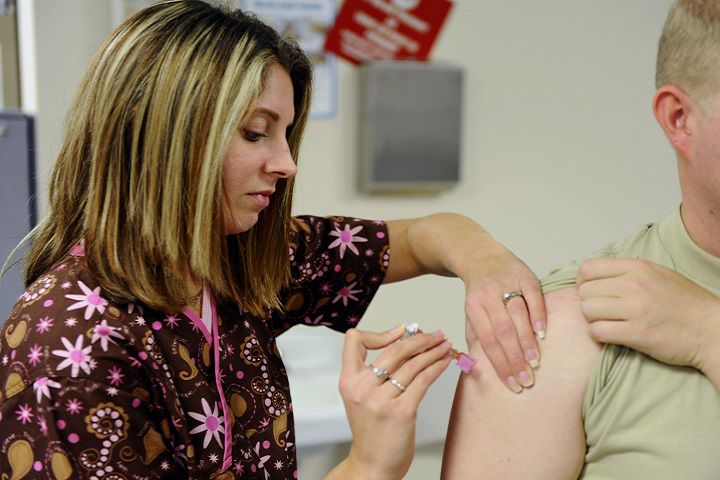Cold and flu season right on schedule
February 4, 2019
Iowa State students are no exception to the illnesses wreaking havoc on the immune system during the winter months, which often lead students missing classes and falling behind in school.
Flu season typically begins in October and lasts until late April or early May. According to the Center for Disease Control (CDC), common colds are the main reason that children miss school.
Olivia Benjamin, a sophomore in public relations, says she is usually sick at least twice during the winter.
“I don’t like to miss class, but when I do it’s because I can’t get out of my bed,” Benjamin said. “What goes through my head is whether or not I will be missing a class that has in class participation points.”
According to the CDC, adults have an average of two to three colds each year and children have even more.
Holly Lipsey, a professor of kinesiology, said that during the winter months, one to two students are usually missing from her classes due to illness. She typically sees common colds, respiratory illnesses and the flu from her students.
Katie Drewlow, a junior in architecture, said she is generally sick for about two weeks during the cold and flu season.
“It needed to be really serious for me not to go to class,” Drewlow said. “I decided not to go to class because I had bronchitis and could barely breathe. I had to make up a few assignments, but I notified the teachers so I wasn’t counted absent.”
As the signs plastered throughout the bathrooms at Iowa State advise that, to better prepare for cold and flu season, students should wash their hands often and cover their cough to avoid spreading germs to their classmates.
The CDC website recommends staying home and resting when sick with the cold or flu. It advises that a doctor should be seen if the symptoms last more than 10 days or if symptoms are severe and unusual.
Thielen Health Center also advises cleaning and disinfecting frequently touched surfaces with antibacterial products, avoiding close contact with persons who are ill and getting the flu shot annually.
Benjamin admitted that this year was the first year as a college student she has received a flu shot.
“My first year on campus, I didn’t get the flu shot, and I felt as though I was always sick,” Benjamin said. “This year, I have felt a lot better.”
Students can get their flu shots updated by making an appointment or walking into Thielen Health Center on campus. The flu shot is available for $25 through injection or nasal spray.
“A student knows his/her body the best. If they aren’t feeling well to be able to function or have a fever, sneezing/coughing a lot or throwing up — stay home,” Lipsey said.
















